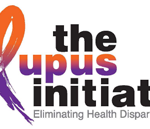“We know that persons with Lupus experience better outcomes when they are quickly treated by knowledgeable providers and taught self-management skills that allow them to be active participants in their own care” said McCalla. “It is our personal goal to ensure they not only have these tools but proper access to physicians who can help them.”
For providers, existing materials include a variety of continuing medical education (CME) platforms, a free maintenance of certification (MOC) module worth 10 MOC credits, traditional and interactive case studies, a video library and PowerPoint presentations. For persons with Lupus, their families and caregivers, educational resources include patient-centric videos, a lupus-specific mobile application to track symptoms and medications, infographics, fact sheets on various aspects of lupus management, and more.
“These resources were developed by a diverse body of experts in rheumatology, dermatology, nephrology and health disparities, and they have undergone rigorous expert review and evaluation by the target audiences they are designed for,” said S. Sam Lim, MD, MPH, TLI Consortium Chair and Associate Professor of Medicine and Epidemiology at Emory University. “We have made great strides in the many communities that are already utilizing these materials to educate their providers and community, so we’re happy to now have the resources to expand this program nationally—particularly to those areas that currently have a shortage of rheumatologists trained to treat lupus.”
Twenty-five rheumatology state societies, Area Health Education Centers, Arthritis Foundation chapters and the National Association of Chronic Disease Directors have already committed to participate in the immediate effort to implement Lupus education in their local communities and provider networks.
“While there has been much progress in improving the management of lupus over the past decade, we still have much work to do to improve early detection, particularly among racial minorities, who experience strong disparities in prevalence and mortality”, said John W. Robitscher, MPH, CEO of the National Association of Chronic Disease Directors. “We eagerly look forward to working with the American College of Rheumatology on this important project.”
Established in 2009, TLI has received multiple awards from the U.S. Department of Health and Human Services to develop educational resources for medical providers and for persons with lupus and their families and caregivers to assist them in the recognition, diagnosis, treatment, and management of lupus. Most recently, the ACR was awarded a grant by the Office of Minority Health (OMH) to expand its educational resources for providers. The ACR also played an active role in the development of the CDC’s National Public Health Agenda for Lupus.

